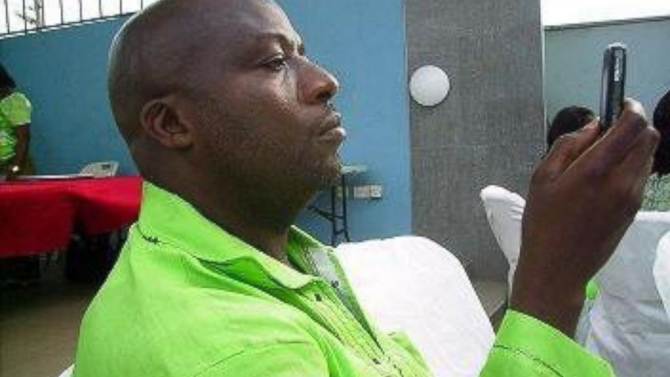Ebola Patient's Texas Contacts Zoom to 80.
The number of people who came into contact with Texas Ebola patient Thomas Eric Duncan has zoomed from as many as 18 to 80, health officials in Texas announced in a statement today.
Duncan, a Liberian man who is the first person diagnosed with Ebola in the United States, is being treated in an isolation unit at Texas Health Presbyterian Hospital Dallas after being brought to the hospital by ambulance earlier this week.
Medical authorities initially said that they were interviewing and monitoring 12 to 18 people, including five children, who had been in contact with Duncan since he arrived Sept. 19. But today Dallas Health Director Zack Thompson told ABC News affiliate WFAA that 80 people who may have come in contact with Duncan are being interviewed.
Thompson said four or five members of Duncan's family are under a "control order" to stay inside their homes.
It's not clear if these four or five people under the control order are the five school age children who were told to stay home from school.
Dr. David Lakey, Texas health commissioner, talked addressed the control order.
"We have tried and true protocols to protect the public and stop the spread of this disease," Lakey said in the statement. "This order gives us the ability to monitor the situation in the most meticulous way."
Authorities say the family members do not currently have symptoms of Ebola, which include fever above 100.5 degrees, headache, nausea, diarrhea or abdominal pain. The order will continue until at least Oct. 19.
Thompson said he was aware of news reports that Duncan had been vomiting before being admitted to the hospital, but said he was not concerned about the vomiting.
Duncan flew from Liberia to Brussels on Sept. 19. He continued to Washington’s Dulles Airport, before flying to the Dallas-Fort Worth Airport on a United Airlines flight.
Authorities with the Centers for Disease Control and Prevention have said airline passengers and flight crew members aren’t at risk for Ebola because Duncan wasn’t exhibiting symptoms until days later, but his diagnosis has left residents in Dallas on edge, with scrutiny for Texas Health Presbyterian Hospital, which allowed the man to leave after he told a nurse he had come from West Africa.
Duncan returned to the hospital by ambulance two days later. He remains in an isolation unit, listed in serious condition.
Mark Lester, the executive vice president of Texas Health Resources, said a communication issue was responsible for the lapse.
“Regretfully, that information was not fully communicated throughout the full team,” Lester said.
Five children who members of Duncan's family have also been told to stay home
Authorities also scrubbed down area schools , trying to contain the disease’s spread.
Duncan spoke on the phone Wednesday with family members who live near Charlotte, N.C.
“We talked today (with Duncan) and we prayed together with his mother and sister here,” said Joe Weeks, who lives with Duncan's sister Mai.
Weeks said that the family is concerned that Duncan was admitted to the hospital and put in isolation on Sunday, but hasn't received the experimental Ebola drugs.
“I don’t understand why he is not getting the Zmapp,” Weeks said.
The manufacturer of the drug has said they have run out of the experimental medicine.
Duncan's former boss in Monrovia, Liberia, said the patient had been his driver for the last year or two until he abruptly left his job in early September.
"I really don’t know," why he left, Henry Brunson, general manager of Safeway Cargo, told ABC News. "He didn’t resign. He just left the office. He just walked away.”
Brunson didn't know where Duncan went until he saw him on the news as the Ebola patient in Dallas, Texas.
Duncan's identity emerged as Texas health officials outlined efforts to track and monitor the people Duncan was in contact with since becoming sick over the weekend.
Dr. Tom Frieden, director of the Centers for Disease and Control and
Prevention, said Wednesday there is a seven-person team in Dallas
working with the local health department and the hospital to identify people who came into contact with Duncan.
Three ambulance crew members who brought Duncan to the hospital were
also tested for Ebola. The tests were negative, but the crew members
were sent home and will be monitored for the next three weeks, the city
said in a statement.
Frieden has said he believes the disease will be “stopped in its tracks” in this country.
Although American Ebola patients have been treated in the United States
prior to this diagnosis, they all contracted Ebola in West Africa. Ebola
has killed more than 3,300 people, with nearly 7,200 cases reported
since the outbreak began in March.
yahoo.
